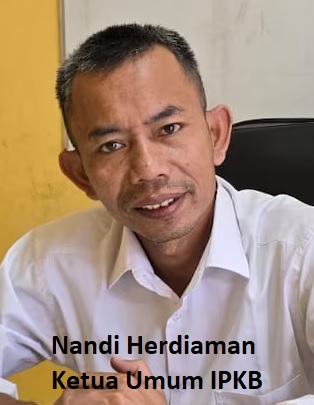The textile and garment producer company PT Sri Rejeki Isman Tbk (SRIL) or Sritex finally responded to the news about the lawsuit for postponement of debt payment obligations (PKPU) by CV Prima Karya.
CV Prima Karya filed a lawsuit against Sritex and its three subsidiaries on April 19, 2021 with lawsuit number 12 / Pdt.Sus-PKPU / 2021 / PN Niaga Smg.
The three Sritex subsidiaries are PT Sinar Pantja Djaja, PT Bitratex Industries and PT Primayudha Mandirijaya.
Referring to the disclosure of information on the Indonesia Stock Exchange website, Sritex management explained that CV Prima Karya is a business partner of a company engaged in the construction sector.
Sritex said that the PKPU report occurred because the applicant, CV Prima Karya, was not satisfied with the bill filed by CV Prima Karya against Sritex.
Regarding the value of the company's obligations and the three subsidiaries that are the basis for the lawsuit against the intended PPKU, Sritex's Finance Director Allan Moran Severino explained that the value of Sritex's obligations to CV Prima Karya was immaterial.
As for this PKPU, Sritex has taken the necessary legal steps to deal with this problem.
"Currently we will monitor developments regarding the case in question, and will act according to procedures," said Allan Moran.
Sritex also emphasized that PKPU's reporting had an impact on the company's operational activities.
In addition, Sritex management also explained, currently the company's cash condition is able to pay off the PKPU lawsuit value in question.
Finally, responding to questions related to the company's strategy to avoid the same legal problems in the future, Sritex replied, "We always open up communication space with other parties and put forward efforts so that all disputes can be resolved in a good way," concluded Allan.
Previously, PT PT Bank QNB Indonesia Tbk (BKSW) filed a PKPU lawsuit against the owner of SRIL Iwan Setiawan Lukminto and SRIL's subsidiary, PT Senang Kharisma Textil.
This lawsuit was registered by QNB Bank at the Semarang District Court (PN) with case number 13 / Pdt.Sus-PKPU / 2021 / PN Niaga Smg on Tuesday (20/4/2021).
This potential has previously been warned by the Moody's rating agency, this agency said that SRIL faces a high risk of refinancing, due to its weak liquidity position and large amounts of debt maturing in the coming quarters.
In addition, SRIL's continued dependence on banks for refinancing needs made the company vulnerable to funding conditions, which weakened amid negative sentiment in the textile sector in the country.
For this reason, Moody's has lowered the company's corporate family Rating (CFR) rating to B3 from B1 previously.
In addition, Moody's also downgraded its rating to B3 from B1 to, first, US $ 150 million of senior unsecured notes maturing in 2024. Also to unsecured debt securities of US $ 225 million which are due in 2025.
These senior notes are published by Golden Legacy Pte. Ltd. and guaranteed unconditionally and irrevocably by Sritex and its subsidiaries.
The same thing was done by Fitch Ratings, this agency has downgraded the company's rating twice in the last two months, from BB- to B- and currently Sritex's rating from Fitch ratings is CCC-.
In a statement provided by Fitch Ratings, currently the company is in a weak liquidity position while the company has a high debt refinancing need.
Because from the company's liquidity position at the end of 2020, the cash value reached US $ 187 million. However, the amount of debt that will mature this year alone reaches US $ 277 million or more than Rp 4 trillion, this value is outside of the previous US $ 350 million syndication.
Currently, the company is trying to apply for a moratorium on the bonds issued by its subsidiary, Golden Legacy Pte Ltd in Singapore. The request for a moratorium will be carried out in a pre-trial conference on April 27, 2021 at The Singapore High Court.
The submission is based on article 64 of Law No. 40 of 2018 concerning Bankruptcy, Restructuring and Dissolution (Insolvency, Restructuring and Dissolution Act 2018 / IRDA) owned by the Singapore government.








